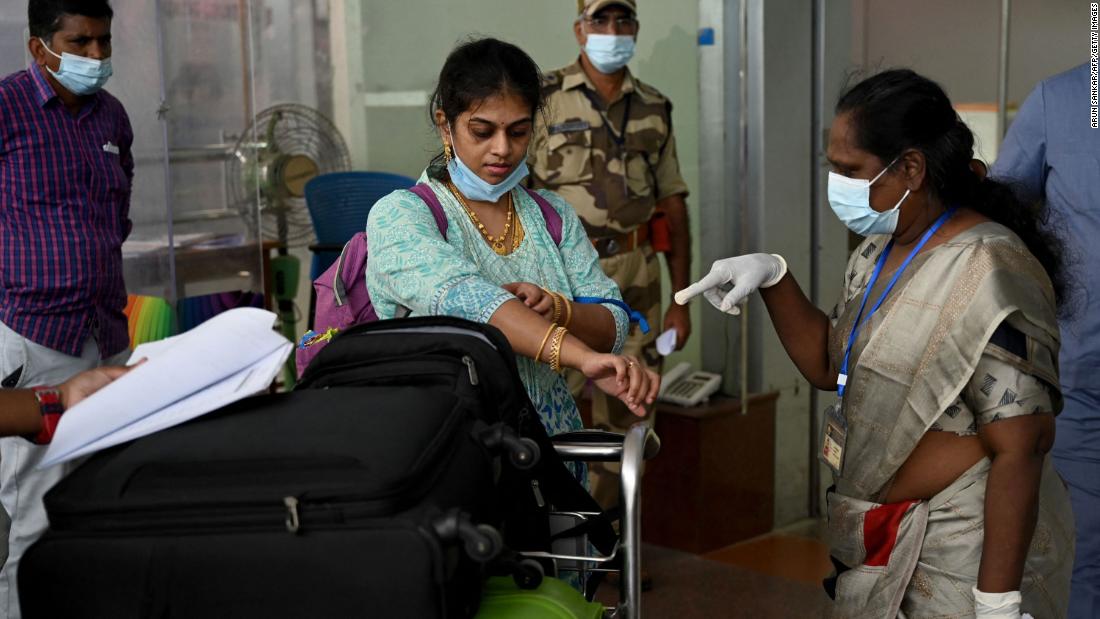
He is currently receiving treatment in hospital and was “in a stable condition,” officials added, declining to reveal further details about the patient, including his nationality.
Initial symptoms of monkeypox infection include fever, headache, swelling of the lymph nodes, back pain, muscle aches and lack of energy, according to WHO. The disease later progresses into a rash and lesions that can blister and scab over all over the body — usually lasting two to four weeks.
Antiviral treatments and vaccines already exist for monkeypox, including those used in the eradication of smallpox, according to WHO.
Japan’s first identified case comes after its Foreign Ministry this week urged travelers to exercise caution regarding the disease. Officials said clinical studies into treatment and preventive measures have been launched, and vaccine shots administered to frontline medical workers in Tokyo.
Caseloads in Asia remain low but experts say the region could see “a likely rise” in the coming weeks.
“Like Covid-19, border and travel restrictions didn’t really stop the spread of monkeypox, only delaying it. The disease will (continue to) spread globally,” said Khoo Yoong Khean, a scientific officer from the Duke-NUS Center for Outbreak Preparedness in Singapore.
“Cases in the US and Europe have been rising rapidly because of travel, trade and tourism. We will likely see more monkeypox cases being reported in Asia over the next few weeks to months.”
According to Khoo, it’s only a matter of time before more countries in Asia identify monkeypox cases.
“The real issue for countries in Asia now is whether the early detection and surveillance systems and processes are robust enough to handle the positive cases when they come through.” he said.
But he cautioned against border restrictions.
“While (somewhat) useful as a stop-gap measure, these are not sustainable and something not many countries can endure again after their experiences with the Covid-19 pandemic,” he said.
‘We need to stay alert’
About a dozen of these new locations are in Asia and the Pacific.
Thailand last week reported its first case in a 27-year-old foreign national in the resort island of Phuket. The Southeast Asian country raised health alerts and stepped up screenings at border checkpoints after the patient fled for neighboring Cambodia following news of his positive test result. He was later detained in the Cambodian capital Phnom Penh.
Thai hospitals have also been told to scan potential patients for monkeypox and immediately undergo lab tests, Health Minister Anutin Charnvirakul told reporters on Monday.
Singapore’s Ministry of Health has confirmed 10 cases in total, including locally transmitted infections and patients who had recently traveled from Canada, the United Kingdom and Germany.
India is also on high alert after confirming its fourth monkeypox case in the capital Delhi on Monday. A 34-year-old man was admitted to hospital with rashes and a fever that had lasted two weeks. The first three cases were detected in the southern state of Kerala in travelers who had arrived from the United Arab Emirates.
Airport screenings have since been stepped up and a high-level medical team deployed to Kerala to assist state health authorities with medical research, Indian authorities said.
In a statement Tuesday, WHO regional director Poonam K. Singh said the risk of a monkeypox outbreak in Southeast Asia was “moderate but the potential of its further international spread is real.”
Anyone can get monkeypox, but a “notable fraction” of cases in the global outbreak are among gay and bisexual men, according to the CDC.
That doesn’t mean the virus is sexually transmitted, but officials say it shows that prolonged skin-to-skin contact is one of the major ways monkeypox is now spreading.
“We need to stay alert and be prepared to roll out an intense response to curtail the spread of monkeypox,” said Singh from WHO. “Our efforts and measures should be sensitive and devoid of stigma and discrimination.”
